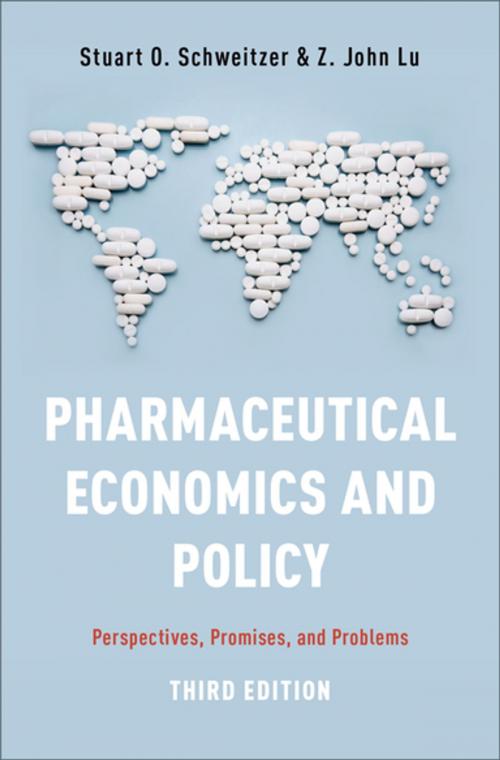Pharmaceutical Economics and Policy
Perspectives, Promises, and Problems
Nonfiction, Health & Well Being, Medical, Medical Science, Pharmacology, Reference, Public Health, Business & Finance, Economics| Author: | Stuart O. Schweitzer, Z. John Lu | ISBN: | 9780190623807 |
| Publisher: | Oxford University Press | Publication: | May 1, 2018 |
| Imprint: | Oxford University Press | Language: | English |
| Author: | Stuart O. Schweitzer, Z. John Lu |
| ISBN: | 9780190623807 |
| Publisher: | Oxford University Press |
| Publication: | May 1, 2018 |
| Imprint: | Oxford University Press |
| Language: | English |
Pharmaceuticals constitute a relatively small share of the total healthcare expenditure in most developed economies, and yet they play a critical role in the ongoing debate over how best to advance, improve, and afford healthcare. Despite this, and perhaps because of this, the industry has had, for many years, an outsized claim to fame and controversy, praise and criticisms, support and condemnation. Unfortunately, many participants in the debate do not fully understand the complexities of the industry and its role in the overall healthcare system. The analytical tools of economics provide a strong foundation for a better understanding of the dynamics of the pharmaceutical industry, its contribution to health and healthcare, its dual and often conflicting priorities of affordability and innovation, as well as the various private and public policy initiatives directed at the sector. This third edition of a uniquely comprehensive and balanced examination of the industry includes several new chapters on important topics such as the full-fledged generics sector, the arrival of biosimilars or generic biological drugs, the global consolidation of manufacturers, the evolving reimbursement landscape, and the emergence of the world's most populous nations, such as China, India, and Brazil, as both suppliers and consumers of pharmaceutical products. Other chapters have been fully rewritten or extensively updated, covering such important topics as the cost efficiency of research and development, pace of new innovations, economic evaluation and value-based pricing of drugs, and public and private interventions in the industry.
Pharmaceuticals constitute a relatively small share of the total healthcare expenditure in most developed economies, and yet they play a critical role in the ongoing debate over how best to advance, improve, and afford healthcare. Despite this, and perhaps because of this, the industry has had, for many years, an outsized claim to fame and controversy, praise and criticisms, support and condemnation. Unfortunately, many participants in the debate do not fully understand the complexities of the industry and its role in the overall healthcare system. The analytical tools of economics provide a strong foundation for a better understanding of the dynamics of the pharmaceutical industry, its contribution to health and healthcare, its dual and often conflicting priorities of affordability and innovation, as well as the various private and public policy initiatives directed at the sector. This third edition of a uniquely comprehensive and balanced examination of the industry includes several new chapters on important topics such as the full-fledged generics sector, the arrival of biosimilars or generic biological drugs, the global consolidation of manufacturers, the evolving reimbursement landscape, and the emergence of the world's most populous nations, such as China, India, and Brazil, as both suppliers and consumers of pharmaceutical products. Other chapters have been fully rewritten or extensively updated, covering such important topics as the cost efficiency of research and development, pace of new innovations, economic evaluation and value-based pricing of drugs, and public and private interventions in the industry.















